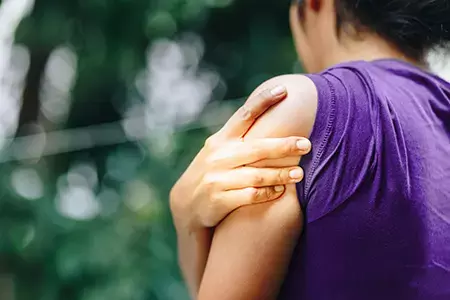- Home
- Medical news & Guidelines
- Anesthesiology
- Cardiology and CTVS
- Critical Care
- Dentistry
- Dermatology
- Diabetes and Endocrinology
- ENT
- Gastroenterology
- Medicine
- Nephrology
- Neurology
- Obstretics-Gynaecology
- Oncology
- Ophthalmology
- Orthopaedics
- Pediatrics-Neonatology
- Psychiatry
- Pulmonology
- Radiology
- Surgery
- Urology
- Laboratory Medicine
- Diet
- Nursing
- Paramedical
- Physiotherapy
- Health news
- Fact Check
- Bone Health Fact Check
- Brain Health Fact Check
- Cancer Related Fact Check
- Child Care Fact Check
- Dental and oral health fact check
- Diabetes and metabolic health fact check
- Diet and Nutrition Fact Check
- Eye and ENT Care Fact Check
- Fitness fact check
- Gut health fact check
- Heart health fact check
- Kidney health fact check
- Medical education fact check
- Men's health fact check
- Respiratory fact check
- Skin and hair care fact check
- Vaccine and Immunization fact check
- Women's health fact check
- AYUSH
- State News
- Andaman and Nicobar Islands
- Andhra Pradesh
- Arunachal Pradesh
- Assam
- Bihar
- Chandigarh
- Chattisgarh
- Dadra and Nagar Haveli
- Daman and Diu
- Delhi
- Goa
- Gujarat
- Haryana
- Himachal Pradesh
- Jammu & Kashmir
- Jharkhand
- Karnataka
- Kerala
- Ladakh
- Lakshadweep
- Madhya Pradesh
- Maharashtra
- Manipur
- Meghalaya
- Mizoram
- Nagaland
- Odisha
- Puducherry
- Punjab
- Rajasthan
- Sikkim
- Tamil Nadu
- Telangana
- Tripura
- Uttar Pradesh
- Uttrakhand
- West Bengal
- Medical Education
- Industry
Does arthroscopic capsular shift surgery for joint instability improve pain?

A recent study by Anju Jaggi and team found that arthroscopic capsular shift surgery individuals with atraumatic shoulder joint instability confers only minimal clinically important benefits in the medium term when compared to diagnostic arthroscopy alone. The findings of the study published in British Journal of Sports Medicine.
The randomized, placebo-controlled trial involved patients aged 18 and above who reported insecurity or apprehension in their shoulder joint, along with evidence of capsulolabral damage revealed through arthroscopic examination. However, patients with shoulder apprehension symptoms triggered by a high-velocity shoulder injury, those with bony or neural damage, a rotator cuff or labral tear, or a history of previous surgery on the symptomatic shoulder were excluded from the study.
Sixty-eight participants were randomized into two groups, one receiving diagnostic arthroscopy alone and the other undergoing arthroscopic capsular shift following diagnostic arthroscopy. All participants received the same postoperative clinical care.
The primary outcome measured in the study was pain and functional impairment, quantified using the Western Ontario Shoulder Instability Index. The researchers established a prespecified minimum clinically important effect of a 10.4-point reduction in pain and disability.
Surprisingly, the results showed that mean reductions in pain and functional impairment for both groups were similar. In comparison to diagnostic arthroscopy alone, the arthroscopic capsular shift group displayed an increase in pain and functional impairment by 5 points (95% CI -6 to 16 points) at 6 months, 1 point (95% CI -11 to 13 points) at 12 months, and 2 points (95% CI -12 to 17 points) at 24 months.
These findings suggest that arthroscopic capsular shift surgery may not significantly alleviate pain or improve functional impairment for patients with atraumatic shoulder joint instability. This study highlights the need for further investigation into alternative interventions that may provide more substantial and lasting benefits to patients. It also underscores the importance of evidence-based medicine in guiding treatment decisions for musculoskeletal conditions.
Source:
Jaggi, A., Herbert, R. D., Alexander, S., Majed, A., Butt, D., Higgs, D., Rudge, W., & Ginn, K. A. (2023). Arthroscopic capsular shift surgery in patients with atraumatic shoulder joint instability: a randomised, placebo-controlled trial. In British Journal of Sports Medicine (p. bjsports-2022-106596). BMJ. https://doi.org/10.1136/bjsports-2022-106596
Neuroscience Masters graduate
Jacinthlyn Sylvia, a Neuroscience Master's graduate from Chennai has worked extensively in deciphering the neurobiology of cognition and motor control in aging. She also has spread-out exposure to Neurosurgery from her Bachelor’s. She is currently involved in active Neuro-Oncology research. She is an upcoming neuroscientist with a fiery passion for writing. Her news cover at Medical Dialogues feature recent discoveries and updates from the healthcare and biomedical research fields. She can be reached at editorial@medicaldialogues.in
Dr Kamal Kant Kohli-MBBS, DTCD- a chest specialist with more than 30 years of practice and a flair for writing clinical articles, Dr Kamal Kant Kohli joined Medical Dialogues as a Chief Editor of Medical News. Besides writing articles, as an editor, he proofreads and verifies all the medical content published on Medical Dialogues including those coming from journals, studies,medical conferences,guidelines etc. Email: drkohli@medicaldialogues.in. Contact no. 011-43720751


